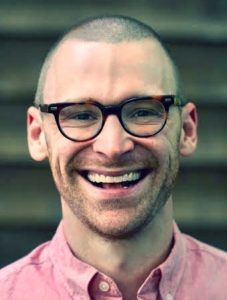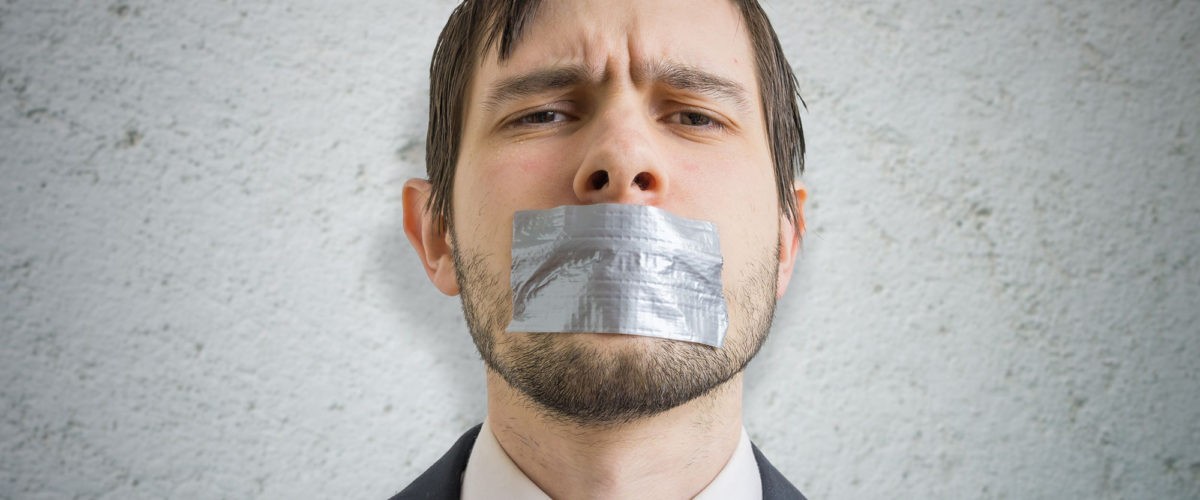Just over four years ago, when Donald Trump was elected president, I was working for a self-styled “moderate” Baptist church in East Tennessee. One of the (mostly) unspoken rules of this and many other moderate Baptist churches like it across the Southeast is that pastors never say anything directly about politicians, public policy or political discourse.

Eric Minton
That’s what conservative or progressive congregations do. They name things for their people, out loud, in front of “God and everybody,” as my grandmother was fond of saying. “Moderate” spaces, on the other hand, moralize, but from a 30,000-foot view. They hedge and nudge and make passive reference to “unrest” or “polarization” or “partisanship.”
This is because, as I was so often reminded, moderate church pastors can’t be explicit because it will “disturb” the very tenuous “peace” they enjoy, or it will wrongheadedly “mingle politics with religion,” or it will result in the great catastrophe all moderate churches fear: “a split.”
Which is why, when I, on this very site, wrote a piece titled “Ash Wednesday, or How (not) to Be Baptist in Trump’s America” I received a significant level of pushback from both “conservative” and more “progressive” members of the moderate Baptist church employing me. I broke the rules, and in the words of one member was, “too direct to be helpful,” which meant my words “would only make it harder to get important things done.”
What those “important things” were is, as of four years later, still to be determined.
On the other side of government-sanctioned treason and sedition against itself (?), I am reminded of the quaintness and hand-wringing that accompanied my saying the quiet part out loud about what runs moderate spaces. That being, the sacrifice of everything and everyone on the altar of its ongoing existence.
“The morality that runs moderate church spaces and moderate politics is the same: survival at all costs.”
The morality that runs moderate church spaces and moderate politics is the same: survival at all costs. Which is why naming the realities of what is actually happening in our world, directly, without equivocation or hedging, betrays the one unassailable myth of moderate churches — that at some point they will, in fact, do something other than exist.
This, friends, as we saw on Jan. 6, is a lie.
What kind of toxicity, abuse, violence and, as my evangelical brothers and sisters might term it, sinfulness, are we implicitly aiding and abiding in the name of peace and bottomless moderate perpetuity?
What kind of pastors, what kind of sermons, what kind of Bible studies did those storming the gates of our Capitol with molotov cocktails in one hand and the cross of Jesus Christ in another actually need from us? I dare say it probably wasn’t one about “all sides.”
If there is anything I have learned in my post-coup existence, it is that the only way to say the truth out loud, to make changes, to risk something for the good of other people, is to stop running for re-election.
If there is anything I have learned in my post-moderate-Baptist-pastor existence, it is that the only way to say the truth out loud, to make changes, to risk something for the good of other people, is to retire.
“Once there are no more stakes, we are free to finally be who we should’ve been when we had access to the pulpit and policy decisions.”
Because then, once there are no more stakes, we are free to finally be who we should’ve been when we had access to the pulpit and policy decisions.
I would argue that there may be quite a few ways to describe, in the wake of one’s retirement or resignation, a direct statement that doesn’t sound like it was written by Dr. Seuss’s PR department, but “brave” isn’t probably the word I would use. Just like Superman taught us, it isn’t bravery when you can’t die, and it isn’t courage when you say hard things out loud only after you’ve already cashed the check.
I realize this is a much easier piece to write because I know that if I do receive ALL-CAPS emails from angry readers, those angry readers won’t have power over my ability to feed my family or receive health insurance. Perhaps that’s the inherent problem at the bottom of all this as it concerns churches and politicians. If Upton Sinclair is to be believed, the hardest thing to do is to get someone to understand something when, as he argued, “their salary depends on their not understanding it.”
“Replacing these pastors and politicians won’t actually fix the problem, because the problem is maintained by a center of gravity bigger than one person.”
When pastors and politicians are prevented from doing what’s right, teaching people what’s right and defending what’s right out of an effort to maintain their livelihoods, it isn’t the people we should be blaming; it is the system that has created them that is to blame. Replacing these pastors and politicians won’t actually fix the problem, because the problem is maintained by a center of gravity bigger than one person.
Moderate churches desperate to avoid a split, just like moderate political operatives desperate to avoid splitting the ticket or the party, are beholden to a religious orientation that has far more in common with the logic of the free market than with the logic of a rabbi who was killed as a political criminal by the Roman Empire. The belief that more time, more discussion, more years in office, more Bible studies, more prayer, more equivocation, more passivity, more existence will one day be saving is the selfsame belief that more money and more economic growth will one day be enough. It won’t ever be. That’s the whole idea.
A system, or political orientation, or religious body that refuses to risk its own death, demise or loss of influence for the sake of something meaningful and redemptive is one that has long since rejected the teachings of a God willing to die for the world even if the world never returns the favor.
I’m saying you don’t get to be people of the resurrection if you aren’t willing to die first.
Eric Minton is a writer, pastor and therapist living with his family in Knoxville, Tenn. He holds a bachelor’s degree in psychology from the University of Tennessee, a master of divinity degree from Fuller Theological Seminary and a master of science degree in clinical mental health counseling from Carson-Newman University.


